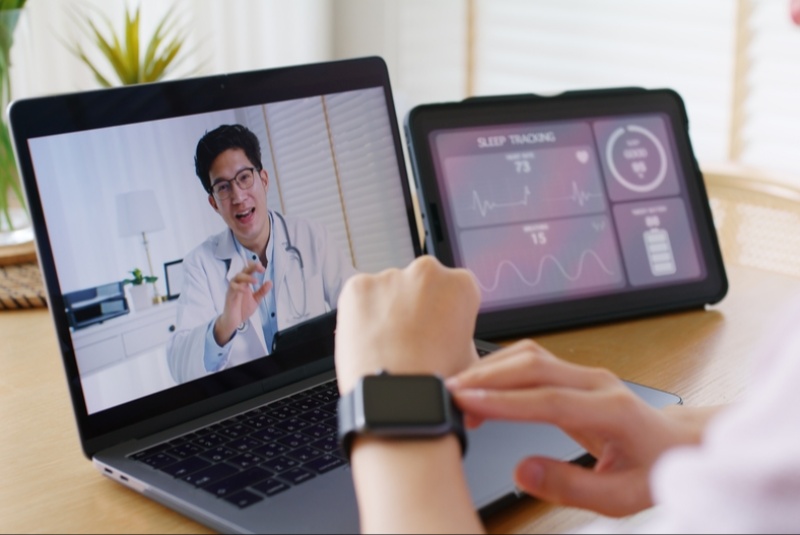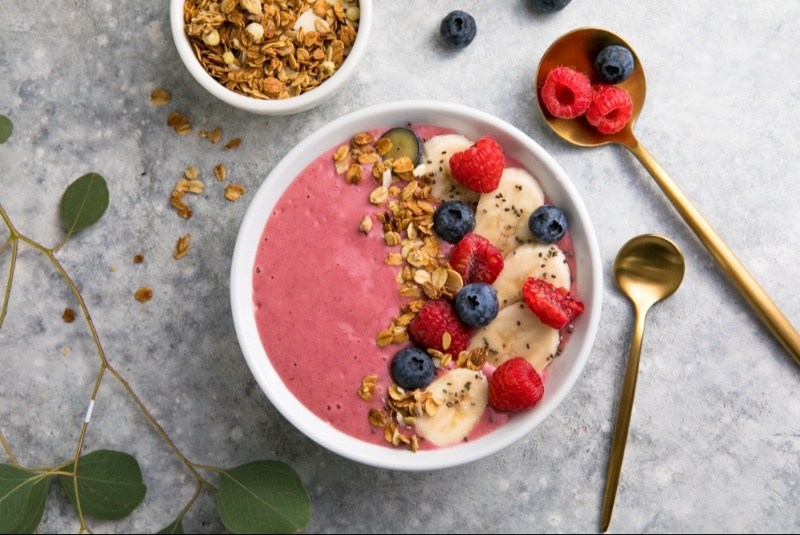In today’s fast-paced world, technology can be a powerful tool to help you lead a healthier lifestyle. From wearable fitness devices to smartphone apps that track nutrition, technology offers endless possibilities to improve your physical, mental, and emotional well-being. Incorporating these tools into your daily routine can help you stay on top of your health goals, monitor progress, and motivate you to make better decisions. This guide will explore various ways you can use technology to support a healthier lifestyle, whether you’re focused on fitness, mental health, sleep, or nutrition.
Use Fitness Trackers to Monitor Physical Activity
Fitness trackers, such as Fitbit, Garmin, and Apple Watch, have revolutionized the way people approach physical activity. These wearable devices monitor everything from steps taken and calories burned to heart rate and sleep patterns. By tracking your daily movements, you can set personal fitness goals, such as walking 10,000 steps a day or improving your cardiovascular endurance. Many fitness trackers also offer reminders to get up and move if you’ve been sedentary for too long. With real-time feedback and data, fitness trackers keep you accountable and motivated, helping you make healthier choices throughout the day.
Explore Mobile Apps for Fitness and Workouts
There’s an abundance of fitness apps available that offer guided workouts, personalized training plans, and fitness challenges. Apps like MyFitnessPal, Nike Training Club, and Peloton provide access to a wide variety of workout routines that cater to different fitness levels and goals. Whether you’re into strength training, yoga, cardio, or HIIT, these apps allow you to exercise from the comfort of your home or on the go. They also provide progress tracking, which helps you stay motivated and monitor improvements. With fitness apps at your fingertips, there’s no need for a gym membership to stay active and healthy.
Track Your Nutrition with Food Logging Apps
Maintaining a healthy diet is easier with the help of nutrition and food logging apps. Apps like MyFitnessPal, Cronometer, and Yazio allow you to log what you eat, providing detailed information on your calorie intake, macronutrients, and vitamins. These apps help you make more informed food choices by showing you how your meals align with your dietary goals, whether you’re aiming for weight loss, muscle gain, or balanced nutrition. Many apps also offer barcode scanners for packaged foods, making it easy to track your meals accurately. By logging your food intake, you can identify patterns and adjust your eating habits to support a healthier lifestyle.
Improve Mental Health with Meditation and Mindfulness Apps
Technology isn’t just for physical health—it can also support mental well-being. Meditation and mindfulness apps like Headspace, Calm, and Insight Timer offer guided meditations, breathing exercises, and relaxation techniques designed to reduce stress and anxiety. These apps help users practice mindfulness by encouraging regular meditation sessions, which have been shown to improve focus, reduce stress, and enhance emotional health. Many of these apps offer customizable programs that address specific concerns such as better sleep, managing anxiety, or improving concentration. By integrating meditation and mindfulness into your daily routine, you can create a healthier mental and emotional state.
Leverage Sleep Tracking Technology
Quality sleep is essential for overall health, and technology can help you improve your sleep habits. Sleep tracking devices and apps monitor your sleep cycles, duration, and quality, offering insights into your sleep patterns. Devices like the Oura Ring, Fitbit, and Apple Watch can track how long you spend in light, deep, and REM sleep, helping you identify areas where you can improve. Some apps, like Sleep Cycle, also offer smart alarms that wake you up during the lightest stage of sleep, leaving you feeling more refreshed. Understanding your sleep patterns allows you to make adjustments, such as improving your bedtime routine or minimizing disruptions for better rest.
Use Telemedicine for Convenient Health Checkups
Telemedicine has become increasingly popular, offering a convenient and efficient way to access healthcare services. With telemedicine platforms, you can consult with doctors, therapists, and specialists remotely via video calls or messaging. This eliminates the need for in-person visits, saving time and allowing for more flexible appointments. Telemedicine is especially useful for non-emergency consultations, prescription refills, or mental health therapy. Many telemedicine services also offer access to online patient portals, where you can view your medical records, track your prescriptions, and communicate with your healthcare providers. By using telemedicine, you can manage your health more conveniently and proactively.

Stay Hydrated with Smart Water Bottles
Proper hydration is a key component of healthy living, and technology can help you stay on top of your water intake. Smart water bottles like the HidrateSpark and Thermos Hydration Bottle track your water consumption and send reminders to drink throughout the day. These bottles often sync with fitness apps or smartphones, providing real-time data on how much water you’ve consumed and how much you still need to meet your hydration goals. Staying hydrated boosts energy levels, improves focus, and supports overall bodily functions. With a smart water bottle, you can ensure you’re getting the right amount of water to maintain optimal health.
Manage Chronic Conditions with Health Monitoring Devices
For individuals managing chronic conditions such as diabetes, high blood pressure, or heart disease, technology offers several tools to monitor health more effectively. Devices like continuous glucose monitors (CGMs), smart blood pressure monitors, and heart rate monitors provide real-time data that helps patients and their healthcare providers track health metrics. Many of these devices sync with mobile apps, allowing users to log their data and share it with their doctors. By keeping a close eye on key health metrics, individuals with chronic conditions can make timely adjustments to their lifestyle or treatment plans, ultimately improving their quality of life.
Use Virtual Fitness Classes for Group Motivation
For those who thrive on group exercise and social motivation, virtual fitness classes have become a popular way to stay active. Platforms like Peloton, Zwift, and ClassPass offer live and on-demand fitness classes that you can join from home. Whether it’s cycling, yoga, strength training, or dance, these classes allow you to engage with instructors and other participants in real-time, creating a sense of community and accountability. Many virtual fitness platforms also offer leaderboards and performance tracking to keep you motivated. By joining virtual classes, you can maintain a consistent workout routine and stay connected with others, even from a distance.
Use Smart Scales to Track Your Progress
Smart scales have advanced far beyond simply measuring your weight. Today’s smart scales, like those from Withings and Fitbit, offer a full range of health data, including body fat percentage, muscle mass, water weight, and even heart rate. These devices sync with fitness apps and allow you to track your body composition over time, offering a more comprehensive view of your health than traditional scales. With regular use, smart scales help you see the progress of your fitness journey, providing motivation to stick with healthy habits. By understanding how your body changes, you can make more informed decisions about your diet and exercise routine.
Wearable Tech for Stress Management
Stress is a common issue in today’s fast-paced world, and wearable technology can help manage it. Wearables like the Fitbit Charge 4, Garmin Vivosmart, and Apple Watch now come with stress-tracking features that monitor heart rate variability (HRV) and other physiological signs of stress. These devices can alert you when your stress levels are elevated and provide guided breathing exercises or relaxation techniques to help you calm down. By actively monitoring and managing stress, you can improve both your mental and physical well-being, reducing the risk of stress-related health issues such as hypertension and anxiety.
Technology has made it easier than ever to take control of your health and well-being. From fitness trackers and food logging apps to telemedicine and sleep monitoring, there are countless ways to use technology to live a healthier life. Whether you’re looking to improve your fitness, nutrition, sleep, or mental health, the right tools can provide guidance, accountability, and real-time insights to help you achieve your goals. By embracing these technological advancements, you can create sustainable habits and enjoy a more balanced, healthier lifestyle in the long term.




